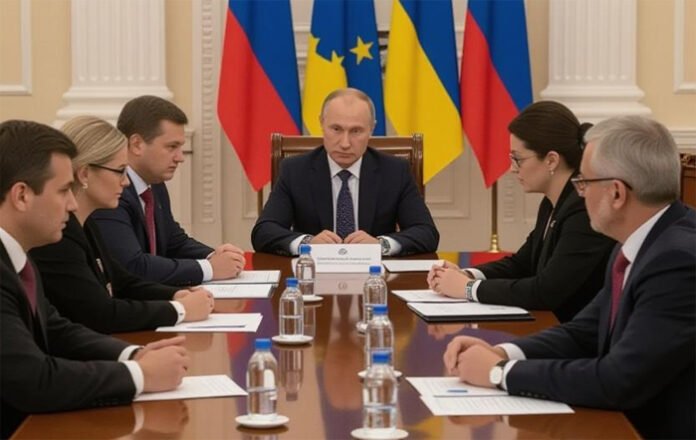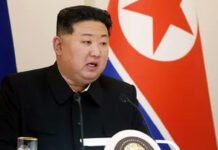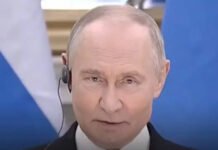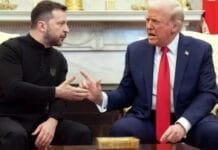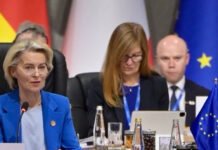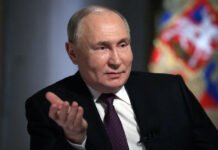The Russia-Ukraine conflict has entered a critical phase in 2025, as European Union (EU) diplomats intensify mediation efforts to prevent further escalation. With ongoing clashes in eastern Ukraine and persistent border tensions, the international community is closely monitoring both military developments and diplomatic interventions.
🔹 Current Situation
Reports indicate a surge in skirmishes along the Donetsk and Luhansk regions, with both sides accusing the other of violating ceasefire agreements.
Ukraine’s Defense Ministry stated, “Russia continues provocative actions along the eastern front, which threatens regional stability.”
Moscow, in response, has reiterated that its operations are defensive, with Kremlin spokesperson Dmitry Peskov claiming, “Our measures are necessary to protect Russian-speaking populations and maintain strategic security.”
🔹 EU Mediation Efforts
The European Union has stepped up its diplomatic initiatives, deploying senior envoys to Kyiv and Moscow. The EU aims to broker a ceasefire, establish humanitarian corridors, and restart dialogue on territorial disputes.
EU High Representative for Foreign Affairs, Josep Borrell, stated, “We are committed to reducing tensions and finding a sustainable, diplomatic resolution that respects sovereignty and human rights.”
🔹 Global Political Implications
Analysts warn that prolonged conflict could destabilize Eastern Europe, disrupt energy supply chains, and strain relations between NATO countries and Russia.
Political analyst Dr. Katarina Novak observed, “This conflict is more than a bilateral issue; it has global repercussions for security, trade, and diplomacy.”
🔹 Humanitarian Concerns
Thousands of civilians remain displaced, with UN agencies emphasizing the urgent need for safe passage and aid delivery. Humanitarian Coordinator Maria Fernandez noted, “Every day of continued fighting increases civilian suffering. International mediation is crucial.”
🔹 Economic Impact
The conflict has affected global markets, especially in energy, agriculture, and manufacturing. Ukraine’s grain exports face delays, while Russian energy supply concerns influence European prices. Economists predict that extended instability could push inflation higher across the EU and neighboring countries.
🔹 Political Reactions
Global leaders have expressed cautious support for EU-led mediation. U.S. Secretary of State emphasized, “Diplomacy must prevail. Military escalation benefits no one.” Meanwhile, NATO continues to fortify its eastern flank, signaling readiness to deter further aggression.
🔹 Path to Resolution
Experts suggest that a successful mediation process requires:
Mutual withdrawal of heavy weaponry along disputed lines
International monitoring to enforce ceasefire agreements
Engagement of multilateral organizations for humanitarian oversight
Dr. Novak added, “The EU’s role is pivotal. Without a credible mediator, the risk of prolonged conflict and spillover effects into neighboring regions increases significantly.”
🔹 Looking Ahead
With winter approaching, analysts warn that conditions on the battlefield and humanitarian corridors will become more challenging. The EU plans to host a series of high-level talks in Brussels and Geneva in the coming months, aiming to achieve a tentative truce before the end of 2025.
Military and diplomatic observers agree that the next few weeks are critical. The success or failure of EU mediation could set a precedent for future conflicts in the region and determine whether broader international engagement will be required.

